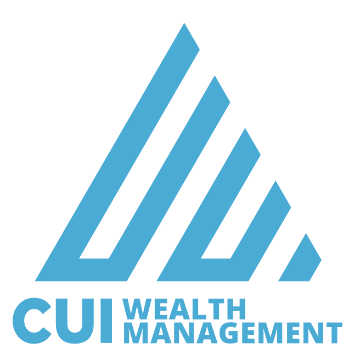Maximizing Your 401(k) Through Compound Interest
An Overview of Compound Interest
Compound interest is a crucial concept in personal finance and investments. It is considered one of the most powerful tools to accumulate wealth; as famously stated by Albert Einstein, it is the "eighth wonder of the world." What makes it so remarkable is its ability to grow small, consistent contributions into significant wealth over time.
Whether you are an individual investor or a company offering your employees a 401(k) plan, understanding and utilizing the power of compound interest is crucial. By taking advantage of compound interest, you can increase your wealth exponentially, leading to a more prosperous future.
Demystifying Compound Interest
Compound interest is a practical financial concept that explains how you can earn interest not only on your initial investment but also on the interest that accrues over time. This compounding effect can lead to exponential investment growth, making it an effective way to save money. In contrast, simple interest is computed only on the principal amount. Therefore, compound interest can help you earn significantly more money in the long run.
How Compound Interest Works
Consider a hypothetical scenario where you invest $1,000 at an annual interest rate of 6%. At the end of the first year, you earn an additional $60 as interest, which increases the total value of your investment to $1,060. In the second year, the interest is calculated on your initial investment of $1,000 and the $60 interest earned in the first year. Thus, you would be earning 6% on the $1,060, making the total balance in year two $1,123.60.
This compounding effect further accelerates the growth of your investment over time, resulting in a higher return on investment.
The Time Factor
One of the most significant factors influencing the power of compound interest is time. The longer your money remains invested, the more time it has to compound, resulting in exponential growth. This underscores the importance of investing early and staying invested for the long term.
For individual investors, especially those planning for retirement, time is a precious asset. Even modest contributions made consistently over several decades can grow into a substantial nest egg thanks to the magic of compound interest.
Similarly, for companies offering 401(k) plans to their employees, encouraging early participation and providing opportunities for long-term investment can significantly enhance the retirement readiness of their workforce.
Harnessing Compound Interest in 401(k) Plans
401(k) plans allow employees and employers to use compound interest. Employers provide these retirement plans and allow employees to invest part of their income in various funds or investment options.
By contributing to a 401(k), employees can enjoy tax-deferred growth, which means their investments can grow without being reduced by annual taxes. Additionally, many employers offer contributions, which can help employees save even more in their retirement accounts.
Employers can use 401(k) plans to attract and retain top talent. One way to do this is to provide competitive matching contributions to employees and offer comprehensive education on the potential benefits of compound interest. This can help employees take control of their financial futures while promoting loyalty and employee engagement.
Strategies for Maximizing Compound Interest
Whether you're an individual investor or a company managing a 401(k) plan, several strategies can help maximize the benefits of compound interest:
Start Early
It's always wise to encourage your employees to start contributing to their 401(k) plans as early as possible, preferably during the initial years of their careers. When employees start investing early, their money has more time to grow and compound, potentially leading to significant long-term growth. So, it's crucial to emphasize the importance of taking advantage of this benefit right from the start.
Consistency
It's essential to maintain consistency when making contributions since even small but regular contributions can significantly impact over time, mainly because of the compounding effect. So, it's crucial to prioritize being consistent in terms of contributions to achieve long-term financial goals.
Diversification
To minimize the risk of losing all your investments in one go, it is always advisable to maintain a diversified portfolio within your 401(k) plan. This means spreading your investments across different asset classes, such as stocks, bonds, and cash equivalents so that if one investment performs poorly, the other can compensate for it. By diversifying your investments, you can take advantage of various market opportunities and potentially earn better returns over the long term.
Review and Adjust
It is essential to advise and motivate employees to conduct regular reviews and adjust their investment allocations. This will enable them to ensure that their investments align with their financial goals, risk tolerance, and current market conditions. It is important to emphasize that regular reviews and adjustments are crucial for employees to make informed investment decisions and achieve their financial objectives.
Conclusion
Compound interest is a testament to the remarkable potential of patient, long-term investing. Whether you're an individual investor laying the groundwork for a comfortable retirement or a company committed to supporting the financial well-being of your employees, understanding and leveraging the power of compound interest can pave the way for a better financial future.
By starting early, remaining consistent, and harnessing the benefits of tax-deferred growth through vehicles like 401(k) plans, investors can unlock the full potential of their wealth accumulation journey. As Einstein famously remarked, "Compound interest is the world's eighth wonder. He who understands it earns it; he who doesn't pays it." The choice is yours.
If you would like a second opinion on your personal wealth management needs, please reach out to us. We are financial advisors in Salt Lake City, Utah. We provide financial services to clients in many states across the country.


